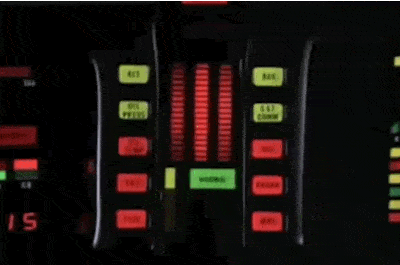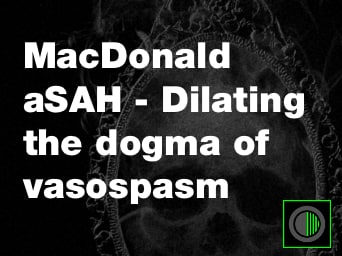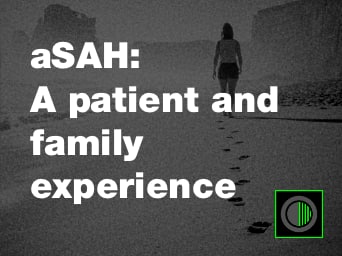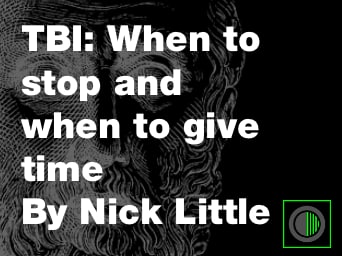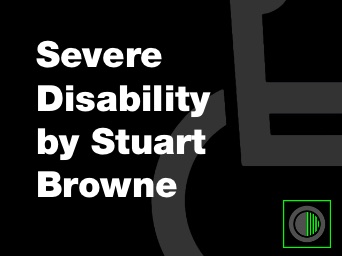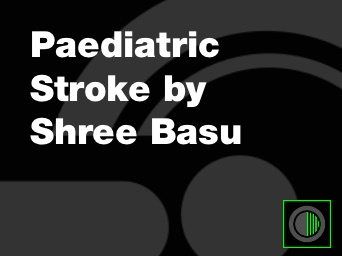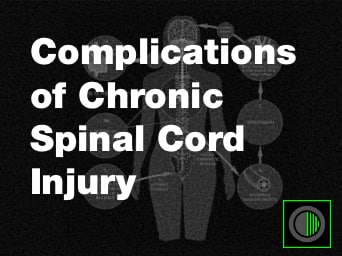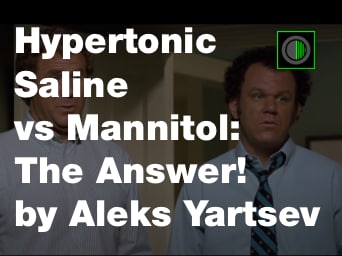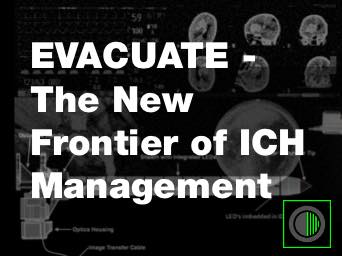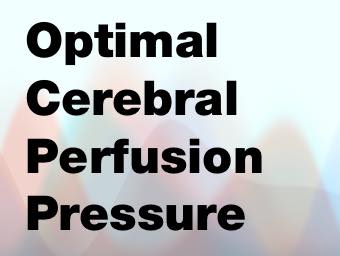Discover Neuro Resus
Neuro Resus

459 Episodes
Reverse
This podcast episode features a conversation between Dr Oli Flower and his AI co-host, Simon (ChatGPT 4o), focusing on vasospasm and delayed cerebral ischemia (DCI) in aneurysmal subarachnoid haemorrhage (aSAH). The discussion covers: The distinction between radiological vasospasm (imaging finding) and DCI (clinical syndrome). The evolution of understanding DCI's multifactorial causes, beyond just vasospasm. Evidence and controversies around ICU management, including blood pressure targets, nimodipine use, and the role of other interventions. Screening and monitoring strategies: transcranial Doppler, CTA, CTP, and the limitations of each. Post-management assessment, therapeutic hypertension, and the emerging role of milrinone. The importance of multimodal monitoring and the future potential of AI and global data sharing. The episode closes with a lighthearted off-topic discussion about casting for the new Naked Gun movie. The conversation is rich in clinical nuance, highlights current evidence gaps, and emphasises the need for individualised patient care and ongoing research.
Professor Lars Lundell. Professor of Surgery Karolinska University Hospital Stockholm. What this man doesn't know about the oesophagus is probably not worth knowing. What he knows about so many other things is worth knowing. Professor Lundell's visit to Australia will not soon be forgotten. His distinct style and his willingness to grasp controversial issues made his multiple lectures at the ASM memorable. From his first talk about critical care aspects of GI surgery to his last asking "Is obesity a surgical disease?" Lars repeatedly surprised the audience. During this recording he again surprises with his commentary upon obesity, bariatric surgery and its future. The talk turns to the real public health problem we have to face and thus to global politics. Lars' talks are worth seeking out via the CICM website. Indeed Lars had so much interesting stuff to say that this podcast, at 30 minutes, is twice the usual length. Sit back and listen. Each year the CICM holds its Annual Scientific Meeting. The Meeting has always been focused upon a single issue or organ system. This year the theme was Gastroenterology entitled "A Gut Reaction; ICU Gastroenterology from beginning to end." The lectures presented at the meeting have been recorded and will all be shared among the delegates and some will also be shared with all comers via the Intensive Care Network (www.IntensiveCareNetwork.com), the celebrated "#FOAMed" website. (Free Open Access Medical Education.) The organisers of the ASM invited #FOAMed podcaster/interviewer Dr Doug Lynch to come along to engage some of the leading lights of the meeting in conversation and record them. These recordings are the latest in a series of podcasts/blogcasts playfully called "Jellybeans". They are entirely spontaneous chats with interesting people; short, completely unscripted, 100% unedited and recorded in one take. It is essentially an uninterrupted live recording. The focus is unapologetically on the quality of the conversation rather than the quality of the audio recording. The host of the interview is a fast talking Irish doctor, a jack of all trades but a master of none, a perpetual student and a trainee of the CICM. The "Jellybean" is an itinerant podcast that regularly appears on www.LifeinTheFastLane.com, www.IntensiveCareNetwork.com and many other websites. Over 100 conversations have been recorded with persons of interest. They are on iTunes and Stitcher Radio. The CICM ASM Jellybean series each start with a biographical component and then the conversation follows its own path. The subject matter is usually that which dwells upon the fringes of intensive care medicine; human factors, education, ethics, equality, gender, personal histories, possible futures and all the other challenges that we so often face. Being so they compliment the lectures but do not attempt to repeat them. We hope you enjoy finding out a little more about the people behind the CICM Annual Scientific Meeting. The four CICM x Jellybean co-branded recordings are part of a larger collection. It is only these four that are formally associated with the College. Doug Lynch is not a representative of the college and any views expressed are his own.
Professor Jules Wendon Jules Wendon is the Professor of Hepatology and Executive Medical Director at Kings College London. When it comes to the intensive care hepatology there are few people that have done more to shape our knowledge and practice than Jules Wendon. Jules travelled to Australia to share her knowledge at the CICM Annual Scientific Meeting. Sharing is a key theme in this interview as Jules insists on crediting her team, all of her team, for their part in the success of Kings. Humble yet inspirational, modest yet brilliant. Have a listen to this short conversation recorded in between her lectures at the CICM ASM in Sydney 2017. Each year the CICM holds its Annual Scientific Meeting. The Meeting has always been focused upon a single issue or organ system. This year the theme was Gastroenterology entitled "A Gut Reaction; ICU Gastroenterology from beginning to end." The lectures presented at the meeting have been recorded and will all be shared among the delegates and some will also be shared with all comers via the Intensive Care Network (www.IntensiveCareNetwork.com), the celebrated "#FOAMed" website. (Free Open Access Medical Education.) The organisers of the ASM invited #FOAMed podcaster/interviewer Dr Doug Lynch to come along to engage some of the leading lights of the meeting in conversation and record them. These recordings are the latest in a series of podcasts/blogcasts playfully called "Jellybeans". They are entirely spontaneous chats with interesting people; short, completely unscripted, 100% unedited and recorded in one take. It is essentially an uninterrupted live recording. The focus is unapologetically on the quality of the conversation rather than the quality of the audio recording. The host of the interview is a fast talking Irish doctor, a jack of all trades but a master of none, a perpetual student and a trainee of the CICM. The "Jellybean" is an itinerant podcast that regularly appears on www.LifeinTheFastLane.com, www.IntensiveCareNetwork.com and many other websites. Over 100 conversations have been recorded with persons of interest. They will appear on iTunes and Google play once the 100th episode is published later this year. The CICM ASM Jellybean series each start with a biographical component and then the conversation follows its own path. The subject matter is usually that which dwells upon the fringes of intensive care medicine; human factors, education, ethics, equality, gender, personal histories, possible futures and all the other challenges that we so often face. Being so they compliment the lectures but do not attempt to repeat them. We hope you enjoy finding out a little more about the people behind the CICM Annual Scientific Meeting. The four CICM x Jellybean co-branded recordings are part of a larger collection. It is only these four that are formally associated with the College. Doug Lynch is not a representative of the college and any views expressed are his own.
Associate Professor Charlie Corke President of the College of Intensive Care Medicine of Australia and New Zealand (CICM). The CICM is the worlds first stand alone College of Intensive Care Medicine. A/Prof Charlie Corke is the President. It is not an easy job to do. It is not an easy job to get. Charlie got there by a path less travelled and he talks about that path, among many other things, in this short interview recorded at the Annual Scientific Meeting of the College. Each year the CICM holds its Annual Scientific Meeting. The Meeting has always been focused upon a single issue or organ system. This year the theme was Gastroenterology entitled "A Gut Reaction; ICU Gastroenterology from beginning to end." The lectures presented at the meeting have been recorded and will all be shared among the delegates and some will also be shared with all comers via the Intensive Care Network (www.IntensiveCareNetwork.com), the celebrated "#FOAMed" website. (Free Open Access Medical Education.) The organisers of the ASM invited #FOAMed podcaster/interviewer Dr Doug Lynch to come along to engage some of the leading lights of the meeting in conversation and record them. These recordings are the latest in a series of podcasts/blogcasts playfully called "Jellybeans". They are entirely spontaneous chats with interesting people; short, completely unscripted, 100% unedited and recorded in one take. It is essentially a live recording. The focus is unapologetically on the quality of the conversation rather than the quality of the audio recording. The host of the interview is a fast talking Irish doctor, a jack of all trades but a master of none, a perpetual student and a trainee of the CICM. The "Jellybean" is an itinerant podcast that regularly appears on www.LifeinTheFastLane.com, www.IntensiveCareNetwork.com and many other websites. Over 100 conversations have been recorded with persons of interest. They will appear on iTunes and Google play once the 100th episode is published later this year. The CICM ASM Jellybean series each start with a biographical component and then the conversation follows its own path. The subject matter is usually that which dwells upon the fringes of intensive care medicine; human factors, education, ethics, equality, gender, personal histories, possible futures and all the other challenges that we so often face. Being so they compliment the lectures but do not attempt to repeat them. We hope you enjoy finding out a little more about the people behind the CICM Annual Scientific Meeting. The four CICM x Jellybean co-branded recordings are part of a larger collection. It is only these four that are formally associated with the College. Doug Lynch is not a representative of the college and any views expressed are his own.
Catherine Bell takes us through how to troubleshoot problems commonly encountered when looking after patients who have an external ventricular drain (EVD) in situ. Issues with using brain tissue oxygen monitors are also discussed. A highly practical session aimed at bedside clinicians. This presentation was delivered by Catherine Bell at CODA2022. Want more content about EVD? Visit neuroresus.com or subscribe to be notified of new podcast releases via email. To express your interest in attending the 2024 Neuroresus live course, click here.
Angiographic vasospasm and more accurately, delayed cerebral ischemia, continue to contribute to morbidity and mortality in patients with aneurysmal subarachnoid hemorrhage (SAH). It is known that angiographic vasospasm is common after SAH, occurring in two-thirds of patients. This presentation was delivered by Rob Loch MacDonald at CODA2022. Want more content about aSAH? Visit neuroresus.com or subscribe to be notified of new podcast releases via email. To express your interest in attending the 2024 Neuroresus live course, click here.
Lizzy suffered a substantial aneurysmal subarachnoid haemorrhage that left her critically unwell, requiring a long stay in intensive care recovering from the consequences and complications of this devastating form of stroke. Now a couple of years after her haemorrhage, Lizzy has come so far. She and her husband Gordon describe their experiences, right from the day it all began and through those tumultuous first few weeks, to where she is today. This open and honest account gives us all invaluable insight into what it's like to go through the subarachnoid haemorrhage journey from a patient and family's perspective, hopefully helping us empathise more and deliver better patient-centred care. This podcast was recorded at the Brain Symposium which took place in March 2023. For more talks and content like this, visit neuroresus.com or subscribe to be notified of new podcast releases via email. To express your interest in attending the 2024 Neuroresus live course, click here.
Andrew Udy talks about the ongoing BONANZA Trial which is assessing whether an algorithm that incorporates both ICP and brain tissue oxygen (PbTO2) can improve outcomes after traumatic brain injury (TBI). Like with all monitoring, how the PbTO2 is interpreted and managed is critical and the devil is in the detail! More on BONANZA here More on BOOST3 here This presentation was delivered by Andrew Udy at CODA2022. Want more content about The Bonanza Trial? Visit neuroresus.com or subscribe to be notified of new podcast releases via email. To express your interest in attending the 2024 Neuroresus live course, click here.
Historically, when it came to brain injury, ketamine had a bad rap. Much of that dogma was dispelled in the last 20 years, and ketamine is now frequently used as an induction agent in acute brain injury, especially traumatic brain injury, partially due to the favorable effects on haemodynamics. However a new application of ketamine is now being explored - whether ketamine may be able to reduce secondary brain injury. In this talk Toby Jeffcote initially takes us through all the sedatives currently used in brain injury and the evidence to support their use. He then covers the history of ketamine use and the background to new research in use as a therapeutic agent. This podcast was recorded at the Brain Symposium which took place in March 2023. For more talks and content like this, visit neuroresus.com or subscribe to be notified of new podcast releases via email. To express your interest in attending the 2024 Neuroresus live course, click here.
Cortical spreading depolarization (CSD) is a spreading loss of ion homeostasis, altered vascular response, change in synaptic architecture, and subsequent depression in electrical activity following an inciting neurological injury. This presentation was delivered by Toby Jeffcote at CODA2022. Want more content about CSD? Visit neuroresus.com or subscribe to be notified of new podcast releases via email. To express your interest in attending the 2024 Neuroresus live course, click here.
Andrew Chow vs Andrew Udy This debate was set up to discuss the issues with categorising traumatic brain injury (TBI). The current system using GCS to divide patients into mild, moderate and severe has been criticised in recent times, with calls for a more nuanced approach. The debate was a just bit of fun but does highlight the key issues. Chowie didn't get to choose which side to argue for :) Andrew Chow, Intensivist with a neurosurgical background, argues that the current categorisation system for TBI works, and makes sense! He tackles us through the history of this system, and why it's important to differentiate different types of TBI. The arguments in favour of this categorisation include the consistency and benefits of a universal language, the implications for triage and management, and the fact that this system has been endorsed by all major organisations. Andrew Udy then argues that this classification is fundamentally flawed. He discusses the issues with the Glasgow Coma Scale, and therefore the follow-on issues in TBI classification, including all the confounders to the GCS, the issues with timing of the score as well as GCS not taking baseline function or specifics subtypes of TBI into account. He makes the argument that biomarkers may better categorise the diffuse entity we call TBI. This podcast was recorded at the Brain Symposium which took place in March 2023. For more talks and content like this, visit neuroresus.com or subscribe to be notified of new podcast releases via email. To express your interest in attending the 2024 Neuroresus live course, click here.
Dr Nick Little is an experienced Neurosurgeon who's looked after patients with traumatic brain injury for his whole career. Here he discusses the difficulties of prognostication following traumatic brain injury (TBI). This podcast was recorded at the Brain Symposium which took place in March 2023. For more talks and content like this, visit neuroresus.com or subscribe to be notified of new podcast releases via email. To express your interest in attending the 2024 Neuroresus live course, click here.
Tania Farrar is a neurologist and epileptologist with expertise in continuous EEG (cEEG) and status epilepticus (SE). This talk covers what a seizure is, what status is, including focal and generalised status epilepticus. This podcast was recorded at the Brain Symposium which took place in March 2023. For more talks and content like this, visit neuroresus.com or subscribe to be notified of new podcast releases via email. To express your interest in attending the 2024 Neuroresus live course, click here.
Stuart Browne is a Neuro Rehab specialist from Sydney. He discusses what "severe disability" really means. Severe disability is more common than many realise - about 6% of the Australian population. Stuart discusses how health is more than simply physical recovery and how it is a multidimensional construct. He covers how permanent disability doesn't necessarily equate to a poor quality of life. He also discusses the long timespan of recovery, which is often much longer than appreciated. He specifically discusses "Locked-in Syndrome" and how the survivors have surprisingly positive self-reported health-related quality of life and well-being. Stuart also covers how severely disabled people face various forms of discrimination. This podcast was recorded at the Brain Symposium which took place in March 2023. For more talks and content like this, visit neuroresus.com or subscribe to be notified of new podcast releases via email. To express your interest in attending the 2024 Neuroresus live course, click here.
Shree Basu is a Paediatric Intensivist in Sydney. She discusses how Paediatric stroke presents, what neuroimaging is required and what interventions are available, including thrombolysis and the role of endovascular thrombectomy. The blood pressure targets in ICU are discussed; while there isn't strong evidence to support these targets, it does make sense and is a separate hot topic in adult strokes, especially post ECR! This podcast was recorded at the Brain Symposium which took place in March 2023. For more talks and content like this, visit neuroresus.com or subscribe to be notified of new podcast releases via email.
After spinal cord injury (SCI), there aren't many interventions we have available that actually make a difference. Augmenting blood pressure to increase spinal cord perfusion pressure is an attractive concept that may improve neurological outcomes following SCI. We know that hypotension can make SCI worse. Clinical studies looking at blood pressure augmentation are mostly old, retrospective and flawed in various ways. Aiming for a MAP of > 85 for 5-7 days is recommended by guidelines but why this pressure and duration are good questions. Hypertensive therapy is relatively safe and easy to implement but not without risk. In this podcast, Tessa Garside discusses the pros and cons, how this is managed practically and what the future may hold in this area. This is a CODA Podcast that was recorded at CODA2022. Want more content about SCI? Visit neuroresus.com or subscribe to be notified of new podcast releases via email.
20 million people around the world are living with a spinal cord injury (SCI). The medical issues they develop over the years differ to any other patient cohort. These complications include autonomic dysreflexia, management of pressure areas, specific infections, nuanced peri-operative care and highly specific issues such as baclofen pump management and syringomyelia. In this podcast Spinal Rehab Specialist Bonne Lee talk about this side of SCI care. This podcast was recorded at the Brain Symposium which took place in March 2023. For more talks and content like this, visit neuroresus.com or subscribe to be notified of new podcast releases via email.
The perennial debate of which osmotic agent to use to reduce elevated ICP still rages on. Who better than Mr Deranged Physiology himself, Aleks Yartsev, to take us through the pros and cons of each and work out a practical strategy. This podcast was recorded at the Brain Symposium which took place in March 2023. For more talks and content like this, visit neuroresus.com or subscribe to be notified of new podcast releases via email.
A Talk by Amal Abou-Hamden on intracerebral haemorrhage (ICH) and the latest developments in the management of this devastating form of stroke, including the ongoing EVACUATE trial, a randomized controlled trial of ultra-early, minimally invasive, haematoma evacuation versus standard care within 8 hours of intracerebral hemorrhage. This podcast was recorded at the Brain Symposium which took place in March 2023. For more talks and content like this, visit neuroresus.com or subscribe to be notified of new podcast releases via email.
Mark Weedon takes us through the increasingly utilised concept of an optimal cerebral perfusion pressure (CPPopt) for each unique patient. This podcast was recorded at the Brain Symposium which took place in March 2023. For more talks and content like this, visit neuroresus.com.


